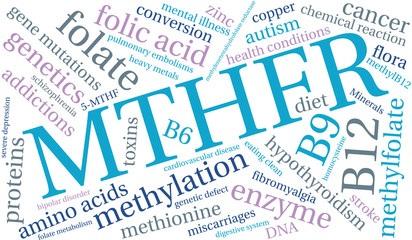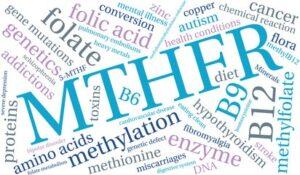by Vanita Dahia
Methylation: The Unsung Hero of Your Body
Methylation is a biochemical process that occurs trillions of times per second within each of your cells. It involves the addition of a small molecule called a “methyl group” to various compounds throughout your body. While this may sound complex, methylation plays a crucial role in numerous vital functions, impacting your mood, hormone balance, fertility, cardiovascular health, and energy levels.
Why is Methylation Important?
Methylation is essential for a wide range of bodily functions, including:
- Gene expression: Methylation helps regulate which genes are turned on and off, influencing protein production and cellular function.
- Neurotransmitter production: It’s involved in the synthesis of neurotransmitters like dopamine, serotonin, and norepinephrine, which play a key role in mood regulation and cognitive function.
- Hormone balance: Methylation is crucial for the proper metabolism and balance of hormones, including estrogen, testosterone, and thyroid hormones.
- Detoxification: It aids in the detoxification of harmful substances from the body.
- Cardiovascular health: Methylation helps maintain healthy homocysteine levels, a risk factor for heart disease.
- Energy production: It supports the production of energy within cells.
How Methylation Impacts Your Health
Mood: Optimal methylation is essential for the production of neurotransmitters that regulate mood. Imbalances in methylation can contribute to mood disorders such as depression and anxiety.
Sex Hormones: Methylation plays a vital role in the metabolism and balance of sex hormones. In women, it’s involved in estrogen metabolism and detoxification, while in men, it influences testosterone production.
Fertility: Proper methylation is crucial for healthy egg and sperm development, as well as for the early stages of pregnancy.
Cardiovascular Health: Methylation helps maintain healthy homocysteine levels, a risk factor for heart disease.
Energy: Methylation supports the production of energy within cells. Imbalances can lead to fatigue and low energy levels.
Supporting Optimal Methylation
Several factors can influence methylation, including genetics, diet, and lifestyle. To support optimal methylation, consider:
Diet: Consume plenty of folate-rich foods (leafy greens, citrus fruits), vitamin B12 (animal products, fortified foods), and B6 (whole grains, legumes).
Lifestyle: Manage stress, get enough sleep, and engage in regular physical activity.
Supplementation: Consider supplementing with methyl folate, vitamin B12, and other B vitamins under the guidance of a healthcare professional.
Testing for Methylation
DNA genetic testing and Methylation profile are the most in-depth ways to determine methylation status and genetic defects in the methylation pathways.
Take the Methylation Quiz
Educational Webinar
Overcome fatigue, improve mood and improve fertility with epigenetics and DNA Methylation
In this webinar, you will learn:
➡ Methylation impact on the body, signs and symptoms of hyper and hypo-methylation
➡ Impact if methylation on dementia, mood disorders, cardiovascular disease, hormone imbalances and infertility
➡ The evolution of methyl testing, understanding the results
➡ Personalized treatment strategies impacting the epigenome
➡ Explore the relevance of activated B vitamins, when and how to supplement






